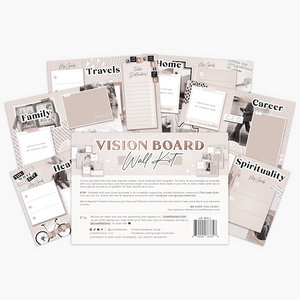Anxiety has a helluva way of creeping up on you, and at the most inconvenient times, too. To cope with anxiety means to learn different skills, tools, and mechanisms that can help curb the harsh symptoms that overstayed their welcome.
You can have an anxiety disorder and still work toward different milestones. In other words, there are ways to cope with anxiety so that you can continue to keep living your life your way.
What Is Anxiety?
According to Medical News Today, there are 40 million people in the United States alone affected by anxiety disorders. Despite being the most common mental illness in the nation, just shy of 37% of people with anxiety disorders receive treatment.
The American Psychological Association describes anxiety as, “an emotion characterized by feelings of tension, worried thoughts and physical changes like increased blood pressure.”
“People with anxiety disorders usually have recurring intrusive thoughts or concerns,” elaborates the American Psychological Association (APA). “They may avoid certain situations out of worry. They may also have physical symptoms such as sweating, trembling, dizziness or a rapid heartbeat.”
How Does Anxiety Work?
Anxiety occurs because it’s our body’s natural response to survival situations. Think of a deer in the woods when their peace is disturbed. Their body freezes in place, they scan the area and listen, and then they take off. This is similar to how anxiety functions.
When humans experience anxiety, it’s because a threat or danger is sensed. That causes a rush of adrenaline which then triggers anxiety in the form of fight or flight responses. This is a necessary function for survival and prepares us to take on whatever is heading our way, or the opposite: it prepares us to run away.
Is there a cure?
There are treatments for anxiety disorder management but there’s no absolute cure or one-time treatment. Despite that not being the ideal reality, healthcare providers are aided by researchers and scientists to help diagnose and treat individuals based on the unique circumstances of their anxiety disorder. Treatment can include medications, psychotherapy, or both.
In-between it all, there are different coping strategies and tips that can help alleviate the stress that makes you anxious.
Here’s a starting point for you.
9 Things Everyone With Anxiety Should Try
9. Get enough sleep, consistently.
When it comes to sleep and anxiety, it feels like there’s no winning. Your anxiety keeps you awake at night, and sleep deprivation makes your body the perfect foundation for more anxiety attacks. What can you do to work through this? It’ll take some time, but here’s a mini Anxious Sleeper Bible for you. Bookmark this blog post now!
- Set a bedtime for yourself (and wake-up time) that gives you at least 7 hours of sleep. Stick to this schedule.
- Log off from devices at least 1 hour before bedtime.
- Set your phone to Do Not Disturb after hours.
- Do a physical activity. Burning energy physically then taking a hot shower can help you slip into sleep easily.
- Don’t eat a heavy meal before you go to sleep.
- Set the temperature in the bedroom to cool.
8. Give yourself permission to pause.
Society is fast but you don’t need to feel obligated to keep running when your legs are tired and need a break. Whatever is on your plate, if you need to pause to recoup, listen to your mind and body’s needs. If you don’t, the anxiety can stack.
7. Talk it out with your younger self.
When you feel an anxiety attack coming on, close your eyes and imagine your 5-year-old self in front of you. Hold your own hand and talk to your younger self, comforting them and offering kindness. The purpose of this coping strategy is to provide yourself the comfort that you trust. It’s almost like a meditation.
6. Identify your triggers and come up with a game plan.
Knowing what is causing your anxiety attacks can help you prepare for the next one. Try to journal at the end of every day and detail events before the anxiety attack. When you identify your triggers, you can then come up with a game plan. For example, Sarah’s trigger is loudness and yelling. When in a situation where the volume of things is out of her control, she excuses herself and finds a private area to talk it out with her younger self.
5. Write how you feel.
Journaling is a therapeutic practice that can soothe you and de-stress you, making it harder for anxiety to emerge. For anxiety, we recommend the 100-Day Positive Thinking Journal from Lovet Planners because it comes with a Positivity Pal that gives guidance on each journaling page.
4. Practice different breathing techniques.
Here’s a great technique to start with. Very Well Health shared deep breathing instructions, explaining, “Deep, abdominal breathing for 20 to 30 minutes each day will reduce anxiety and reduce stress, according to The American Institute of Stress (AIS). Deep breathing increases the supply of oxygen to your brain and stimulates the parasympathetic nervous system, which promotes a state of calmness.”
3. Avoid caffeinated drinks and alcohol.
Avoiding caffeinated beverages is recommended because the “jittery” side effects of caffeine can set off fight or flight responses. Caffeine can manifest physically in ways that can be triggering. The same can be said for alcohol which may aggravate or resurface traumas.
2. Set boundaries with others and yourself.
Don’t overexert yourself by saying yes to everyone and every single thing. Burning energy at a rapid rate can imitate feelings of sleep deprivation which then can be the breeding grounds for anxiety attacks. Set boundaries with others, practice saying no, and even set boundaries with yourself. Structure helps.
1. Give yourself permission to be a work in progress.
Progress and healing aren’t always linear. Offer yourself grace and kindness.
Did you like this blog post? When you love it, we LOVET. Keep up to date with the latest blog posts, Lovet Planners sales, self care tips, vision board tips, and more by subscribing to receive our newsletters: CLICK HERE NOW.



![Manifestation Memo Pad [DAILY]](http://lovetplanners.com/cdn/shop/files/Manifestingjournalplanner.png?v=1704323635&width=300)








